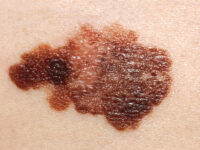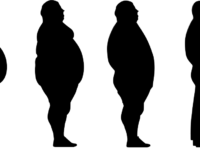Living is hard. The sensitivity of human health to a variety of factors often makes it easy for the body to deteriorate in the face of threats. Unfortunately, individuals do not just have their diet and exercise to worry about when it comes to maintaining their health. They must also consider the crimes committed in their communities, which can inadvertently harm non-victims. Especially prominent in cities where the population density and crime rates are high, many studies conducted over the decades continuously find similar results: a decline in physical and mental health from exposure to violence and crime.
“Crime affects one’s physical health in roundabout ways as well, such as influencing behaviors.”
This physical deterioration could unfortunately begin as early as childhood. Links to psychological effects may seem more obvious than those to physical health, though the close ties between these factors make it easy for mental health problems to cause physiological issues as well. According to pediatricians Dr. Shonkoff and Dr. Garner, toxic stress manifests itself through weaker immune systems with downstream consequences including, but not limited to, cardiovascular disease, hepatitis, and liver cancer. Direct physical effects have also been noted. A 2015 meta-analysis conducted by the Department of Epidemiology at Columbia University found that childhood exposure to violence increased resting blood pressure, which puts individuals at particular risk for stroke and ventricular hypertrophy.
Racial and gender differences also play a role in an individual’s crime-related health. Researchers from the University of Maryland and the National Institute on Aging noted that African American women, as compared to African American men and white women and men, were the most vulnerable to health consequences resulting from crime exposure; these parameters included higher blood pressure and glucose levels. This likely results from differences in social experiences rather than any prominent biological differences. Because women and racial minorities are more likely to be victims of crime, such exposures would be of greater concern for them. Even if they are not the victims of the crime themselves, knowing that the risk of becoming one exists could cause psychological distress and its resulting physiological consequences.
“The sensitivity of human health to a variety of factors often makes it easy for the body to deteriorate in the face of threats.”
Crime affects one’s physical health in roundabout ways as well, such as influencing behaviors. Researchers from RAND Corporation found that the use of outdoor public parks decreased following violent crimes, particularly in adults and the elderly. Without this space, people have less access to physical activities. Removing exercise from an individual’s routine would also remove the physical and mental benefits it provides to their well-being. Furthermore, some may develop unhealthy coping mechanisms in response to crime exposure, including drug usage, risky behavior, and worsening diet. Both lead to negative consequences for physical and mental health. In particular, low exercise, bad diet, and substance use are known to increase the risk of developing cardiovascular diseases, according to researchers from Columbia University.
Criminals hurt more than just their victims; communities of people around the crime end up suffering consequences alongside them. However, the complexity of the issue makes it difficult to resolve. Between attempts from the police and political figures to reduce crime and various public health authorities’ programs to address individuals’ health, continuous efforts have been made for decades to improve the situation. The growing mass of data accumulated from all these attempts may help bring us closer to a solution. As said by the Office of Disease Prevention and Health Promotion, “addressing exposure to crime and violence as a public health issue may help prevent and reduce the harms to individual and community health and well-being.”
Image courtesy of Rawpixel






